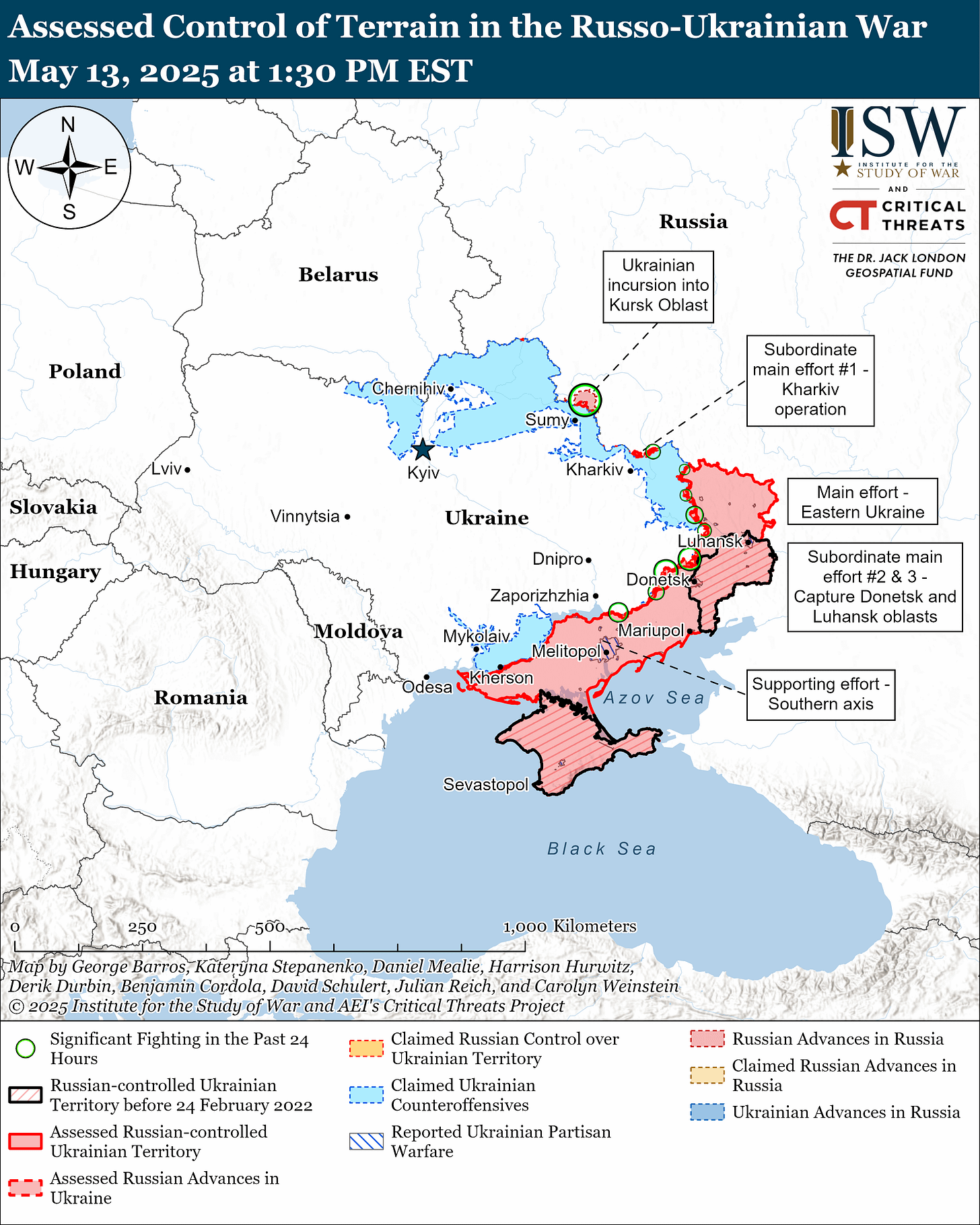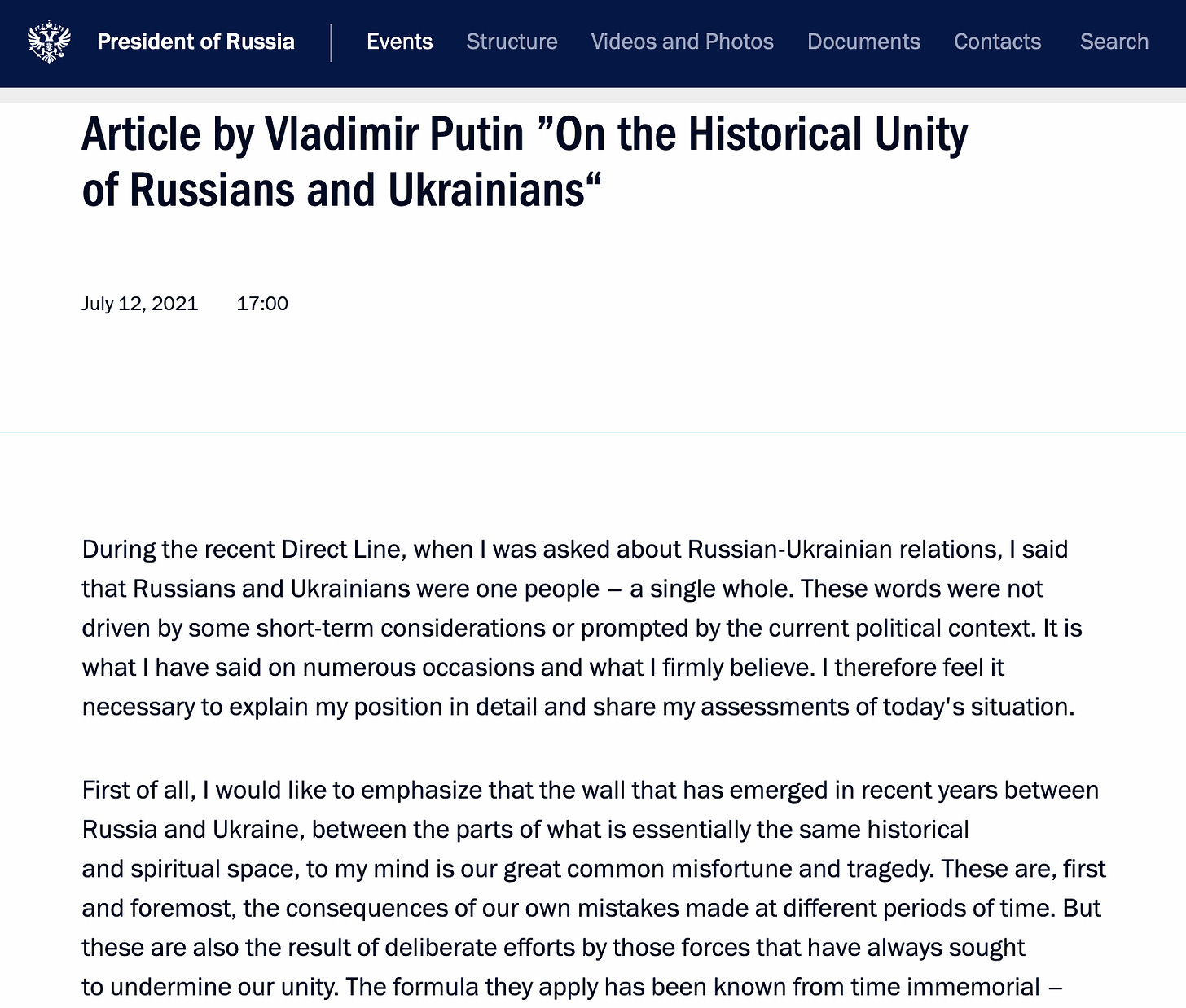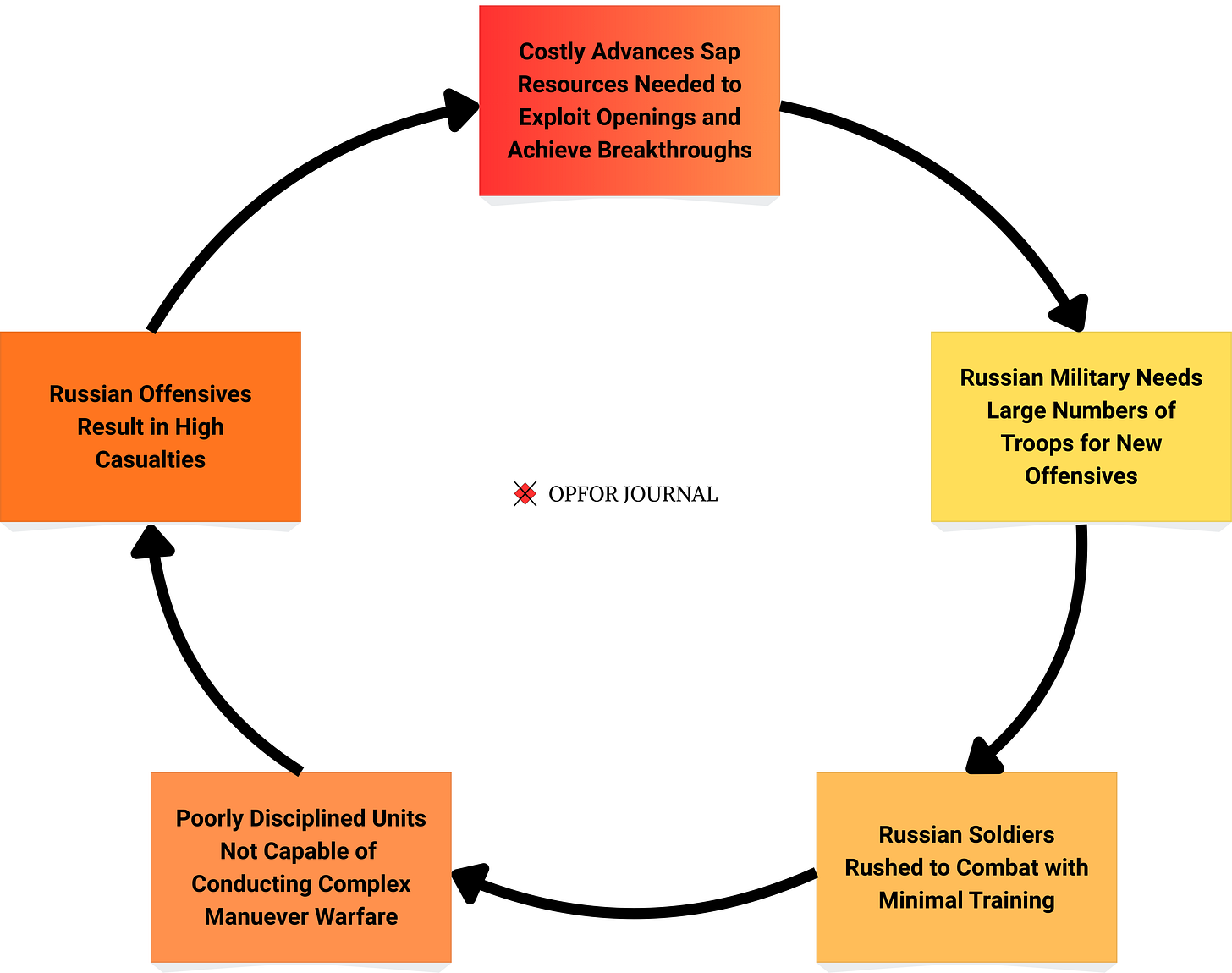Situation Report: Ceasefire Negotiations with Russia
Vladimir Putin rebuffs two attempts by the US to mediate an end to the war in the past week as he seeks to drag out negotiations and seek maximum concessions
The past week has seen two separate attempts by the US to push Russia to negotiate a quick end to the war in Ukraine. On May 16, Ukraine and Russia held negotiations in Istanbul. The quick collapse of those talks, discussed in last week’s Significant Activity Report, prompted US President Trump to contact Russian President Vladimir Putin directly. The May 19 call between the two leaders lasted two hours and resulted in a declaration that Russia and Ukraine would begin ceasefire negotiations and make progress toward peace.

There are several indications that President Putin is not interested in peace at this time, and that the Russian leader is using circular negotiations to decline US mediation without overly antagonizing President Trump.
Key Indicators of Putin’s Disinterest:
Vladimir Putin has repeatedly ruled out US entreaties for a 30-day ceasefire.
Putin declined the opportunity to attend May 16 talks directly despite an offer from President Trump to attend.
Putin decided to withhold the Russian Foreign Minister Sergey Lavrov from attending the Istanbul talks in favor of a lower level delegation led by personal aide Vladimir Medinsky.
The Russian delegation behaved belligerently during the Istanbul talks, and set new conditions for peace than had previously been discussed with the US.
Putin treated the May 19 phone call from President Trump casually, taking it during a break from a visit to a preparatory school in Sochi, rather than at the Kremlin.
Putin is Disinterested in Ending the War for Three Reasons:
First, the Russian government has not yet made a compelling case that it has achieved victory in the war. Second, President Putin appears to believe that time will yield a better deal than any currently on offer. Finally, Putin is not interested in the “carrots” being offered in negotiations.
1. THE KREMLIN LACKS A COMPELLING CASE FOR VICTORY
The exact war aims of the Russian “special military operation,” have always been hard to pin down. Russia's stated goals of "denazifying" and "demilitarizing" Ukraine have been employed by its propaganda outlets and supporters to rationalize the conflict. They present a shifting and sometimes inconsistent set of complaints as the underlying root causes of the war that must be resolved to satisfy Russia's security concerns. Although vague and flexible, it's not obvious that the Kremlin can claim these goals accomplished.
Below is a conservative interpretation of Russia’s initial war aims and whether these have been achieved or not:1
Permanently arrest Ukraine’s societal drift toward Europe. Foreclose paths to EU and NATO membership. Incorporation of Ukraine into Russian institutions such as the Eurasian Economic Union, Collective Security Treaty Organization, and Commonwealth of Independent States. (Not achieved)
Establish Russian political control of the country through the installation of a puppet regime in Kyiv, (Not achieved)
Resolve outstanding issues resulting from the seizure of Crimea and frozen conflict in the Donbas. These include establishing direct Russian annexation and administration of the Donbas territories of Donetsk and Luhansk, and de facto Russian control of Kherson and Zaporizhzhia oblasts to create a land bridge to Crimea, (Partially achieved)
Prevent Ukraine from breaking free of Russian rule again through a systematic suppression of Ukrainian nationalism, resulting from a purge of Ukrainian national elites and institutions. (Not achieved)
Leverage quick victory in Ukraine to re-assert Russia as an ascendant great power in contrast to declining West. (Partially achieved)2
If Putin were to agree to a permanent ceasefire and freeze the conflict along the current frontlines, he would effectively admit that his initial war aims were not achieved.
Ukraine’s military is now larger and more powerful than it was before the war. Ukraine’s politics and society are more oriented toward the West than they were four years ago, and are more anti-Russian in character. And while the war has produced some territorial gains for Russia, most of those gains came during the initial days of the war and were followed by humiliating reversals.

An inconclusive end to the war would also keep alive doubts about the might and unity of the Russian military which the war repeatedly provoked with events such as the Ukrainian counteroffensive in the fall of 2022, to Wagner Mutiny of 2023, to the Ukrainian Kursk offensive in 2024.
2. PUTIN BELIEVES TIME WILL YIELD A BETTER DEAL
While the war has yet to fulfill its initial goals, Putin reportedly believes that his leverage will improve over time. The Russian military continues to suffer enormous losses, but it ultimately slowly advances on the battlefield. Incremental forward progress by Russia’s larger military, fueled by Russia’s larger economy establishes a theory of victory for Putin which is not easily refutable. This strategy allows Putin to lay out maximal demands as a reasonable compromise to inevitable Russian military victory.
It is far from clear though that Russia’s plodding advances will lead to any major breakthroughs. Throughout the war the Russian military has periodically surged offensive operations. These big pushes have occasionally resulted in the seizures of small to medium sized cities in areas of operational significance such as Bakhmut, Avdiivka and Vuhledar, but have also caused immense Russian casualties which impeded effective follow on operations. High casualties appear to be a cause of diminishing Russian advances in recent weeks after some battlefield successes this winter. Ukraine's ever increasing drone use and field fortifications will continue to make Russian offensives very costly and limit the chance of a breakthrough.
Even if Russia doesn’t achieve a breakthrough, Putin may believe that time will yield new opportunities to apply pressure on the alliance supporting Ukraine. Putin may sustain the war to see if new elections across Europe produce leaders more amenable to Russian objectives, or if fissures erupt within the NATO alliance and provide opportunities to secure new concessions.
3. PUTIN IS NOT INTERESTED IN THE “CARROTS” BEING OFFERED IN NEGOTIATIONS
It is unlikely that Putin will be induced into making peace for lucrative trade agreements and a normalization of diplomatic ties with the West. Putin launched the war with an understanding that the US and EU would impose serious economic costs on the country.
The Russian economy faces enormous structural problems resulting from sanctions. However, these are long-term issues that can likely be managed until the conclusion of the war. The Russian government has largely stabilized the economy enough to face the current sanctions regime through a combination of import substitution, Military Keynesianism, transshipments of goods, and economic and military support from allies.
This equilibrium could be threatened by a decline in the price of fossil fuels or secondary sanctions and tariffs which make Russia’s allies rethink the levels of their support. But if the current dynamic holds, Putin has reason to believe he has enough economic bandwidth to continue the war for a bigger prize.
The prize Putin seeks is ultimately not economic but imperial in nature. Putin, who has repeatedly lamented the collapse of the Soviet Union, has built his legacy around the expansion of Russia’s territory, the cult of Russian military valor, and the forcible suppression of perceived Russophobia and anti-Soviet historical memory on its borders.
This legacy of imperial renewal also follows an apparent evolution in Putin’s thinking as a leader. In the early 2000s Putin’s value proposition to the Russian people was stability and economic growth. By 2012, when Putin returned to the presidency, this pragmatism began to give way to ideological conservatism. His ideological leanings have become more extreme and more incorporated into state policy since. Despite growing increasingly repressive, Putin has experienced surges in his popularity when he has lashed out at foreign enemies (seen both in 2014 with the seizure of Crimea and in 2022 at the start of the full-scale invasion of Ukraine,) effectively exchanging good governance for greater glory as his primary source of legitimacy as leader.

Ending the war now would provoke questions about Putin’s resolve after years of triumphalist rhetoric, inflated claims of battlefield success, and promises that victory was right around the corner. Such an outcome would infuriate hawkish Russian ultranationalists who have often been critical of what they see as Putin’s cautious prosecution of war. Dissatisfied ultranationalists, rather than pro-Western reformers, have represented the biggest immediate threat to Putin’s rule, as evidenced by the Wagner Group uprising of 2023. Putin has managed this threat by killing or jailing potential emergent leaders, such as infamous paramilitary leader Igor Girkin and the Wagner Group’s Yevgeny Prigozhin, in order to keep the hawkish fringe disordered and generally aligned with the Kremlin. An unsatisfying end to the war in exchange for lucrative trade agreements could however be a unifying event for angry “turbo-patriots,” who would see such deals as evidence of a corrupt betrayal of the military for the enrichment of the political elite.
These be inferred from a range of actions taken by the Kremlin prior to the war, including updates to Russia’s National Security Strategy and Putin’s manifesto on the ”On the Historical Unity of Russians and Ukrainians“:
Russia’s intense outreach and information operations in the Global South, supported by countries like China, have persuaded many observers that it has effectively stood up to and helped roll back Western hegemony.





